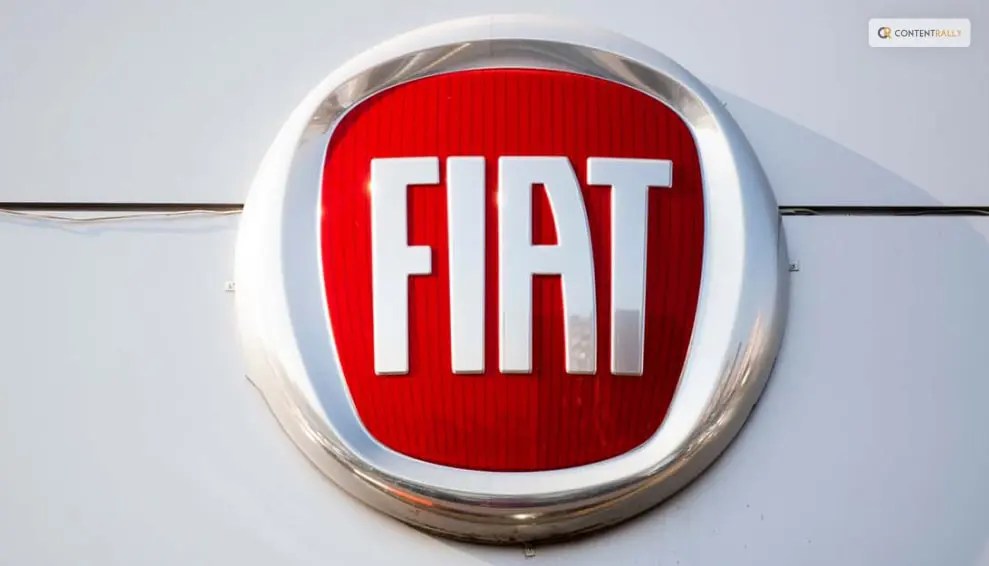

Does Fiat Own Ferrari? A Comprehensive Insight Into The Automotive Giant's Ownership
The question of whether Fiat owns Ferrari is one that intrigues many automotive enthusiasts and casual observers alike. This curiosity often stems from the historical ties and financial transactions that have linked these two iconic brands over the decades. In this article, we will delve into the intricate relationship between Fiat and Ferrari, exploring the ownership structure, historical context, and implications of their partnership on the automotive industry.
As we navigate through the details, we will uncover how Fiat's influence has shaped Ferrari's journey, particularly in terms of performance, innovation, and global presence. By the end of this article, you will have a clearer understanding of the current ownership status of Ferrari and the role Fiat plays in its operations.
Join us as we unravel the facts and figures that define the connection between Fiat and Ferrari, ensuring that you are well-informed about one of the most captivating narratives in the automotive world.
Table of Contents
- 1. A Brief History of Fiat and Ferrari
- 2. Current Ownership Structure
- 3. Fiat's Role in Ferrari's Success
- 4. Financial Performance of Ferrari
- 5. The Brand Identity of Ferrari
- 6. Future Prospects for Ferrari and Fiat
- 7. Conclusion
- 8. References
1. A Brief History of Fiat and Ferrari
Fiat, an acronym for Fabbrica Italiana Automobili Torino, was founded in 1899 and quickly became one of Italy's leading automobile manufacturers. On the other hand, Ferrari, founded by Enzo Ferrari in 1939, began as a division of Alfa Romeo and eventually became a standalone brand known for its high-performance sports cars.
The relationship between Fiat and Ferrari began in the late 1960s, when Fiat acquired a controlling stake in Ferrari. This acquisition marked a pivotal moment in both companies' histories, as it allowed Ferrari to expand its operations while benefiting from Fiat's resources and distribution networks.
2. Current Ownership Structure
As of now, Fiat does not directly own Ferrari. In 2015, Ferrari went public with an initial public offering (IPO) on the New York Stock Exchange, which significantly altered the ownership landscape. Fiat Chrysler Automobiles (FCA) held a 90% stake in Ferrari at that time, but subsequent stock sales reduced this percentage.
Today, Ferrari is part of the Stellantis group, which emerged from the merger of FCA and PSA Group in January 2021. While Fiat's influence remains, it is essential to recognize that Ferrari is now an independent entity with its own management and operational strategies.
Ownership Breakdown
- Stellantis: 14% (directly held)
- Public Shareholders: 86% (after IPO)
3. Fiat's Role in Ferrari's Success
Fiat's contribution to Ferrari's success cannot be understated. The financial backing and engineering expertise provided by Fiat have allowed Ferrari to invest in research and development, leading to innovations in performance and design.
Moreover, Fiat's extensive distribution network has enabled Ferrari to reach a broader audience, solidifying its position as a luxury brand in the global market. This partnership has been beneficial for both companies, allowing Fiat to enhance its prestige through association with the iconic Ferrari brand.
4. Financial Performance of Ferrari
Ferrari has consistently showcased strong financial performance, with impressive revenue growth and profitability. In 2022, Ferrari reported revenues of approximately $5.5 billion, demonstrating a 10% increase from the previous year. The company has a track record of maintaining high margins due to its focus on exclusivity and limited production runs.
Key financial metrics:
- Revenue (2022): $5.5 billion
- Net Profit Margin: 20%
- Production Volume: 10,000 units annually
5. The Brand Identity of Ferrari
Ferrari is synonymous with luxury, performance, and exclusivity. The brand's identity is deeply rooted in its racing heritage, with a long history of success in motorsport, particularly in Formula 1. This legacy has contributed to Ferrari's allure and desirability among car enthusiasts and collectors worldwide.
The brand's marketing strategy emphasizes its heritage, craftsmanship, and the emotional connection customers have with its vehicles. This approach has positioned Ferrari as a leader in the luxury sports car market.
6. Future Prospects for Ferrari and Fiat
The future looks promising for both Ferrari and Fiat. Ferrari continues to innovate, with plans to expand its electric vehicle lineup in response to changing consumer demands and environmental regulations. This strategic shift will help the brand maintain its competitive edge in the rapidly evolving automotive landscape.
For Fiat, the merger with PSA Group has opened new avenues for growth and collaboration, allowing the brand to leverage shared technologies and platforms. As both companies navigate the complexities of the global market, their relationship will likely evolve, but the legacy of their partnership will remain significant.
7. Conclusion
In summary, while Fiat no longer directly owns Ferrari, the historical ties and collaborative efforts between these two automotive giants have undeniably shaped the industry. Fiat's influence has been pivotal in Ferrari's growth, but as Ferrari continues to operate independently, it remains a symbol of luxury and performance.
We encourage you to share your thoughts on the relationship between Fiat and Ferrari in the comments section below. If you found this article informative, feel free to share it with fellow automotive enthusiasts or explore more content on our site.
8. References
For further reading and to support the information presented in this article, consider the following sources:
- Ferrari N.V. Annual Report 2022
- Stellantis Press Releases
- Automotive News: "Fiat and Ferrari: A Historical Perspective"
You Also Like
Died On Roller Coaster: A Deep Dive Into Tragic Amusement Park IncidentsQLED Vs OLED: Which Is The Best Display Technology For You?
Coc Hack Game: Everything You Need To Know About Clash Of Clans Hacks
Discover The Best SmartStyle Hair Salons For Your Next Look
What Do Medusa Tattoos Mean? Exploring The Symbolism And Significance



